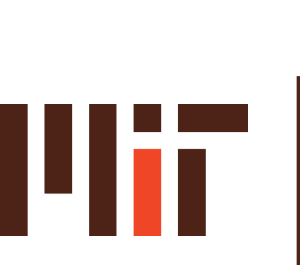Episode 5 – David Peterson On Using Language Intentionally
Podcast: Play in new window | Download (Duration: 9:28 — 13.0MB) | Embed Subscribe: Apple Podcasts | Google Podcasts | Stitcher | Email | TuneIn | RSS
Language Creator David Peterson discusses how we can learn from the construction of language in order to communicate better. Peterson is famous for his work creating the Valyrian & Dothraki languages for the Game of Thrones television show.
IMAGE CREDIT
*David Peterson Photograph by Gage Skidmore
EPISODE CREDITS
Guest Starring David J. Peterson, Language Creator
Produced & Hosted by Adam Greenfield
Executive Produced by Patrick Yurick, Instructional Designer – MIT OGE
Executive Produced by Heather Konar, Communication Director – MIT OGE
Special thanks to the following editors who provided us invaluable feedback that aided in the development of this show:
Christopher O’Keeffe, Co-Founder of Podcation
Kristy Bennet, Manager – MIT Women’s League
Jennifer Cherone, Phd Candidate – MIT Burge Laboratory
Erik Tillman, Phd, Formerly of the Kim Lab & Currently A Fellow at Vida Ventures, LLC
The Great Communicators Podcast is a part of Gradcommx. Gradcommx, targeted at enhancing research communication, is the first offering of Gradx – a professional development project created for the graduate student population at the Massachusetts Institute of Technology by the Office For Graduate Education.
MUSIC & SOUNDS
“All The Best Fakers” by Nick Jaina is licensed under a Attribution-NonCommercial 3.0 International License (http://freemusicarchive.org)
“Micro” by Blue Dot Sessions is licensed under a Attribution-NonCommercial License. (http://freemusicarchive.org)
“Tar and Spackle” by Blue Dot Sessions is licensed under a Attribution-NonCommercial License.
“Alchemical” by Blue Dot Sessions is licensed under a Attribution-NonCommercial License. (http://freemusicarchive.org)
“Deliberate Thought” Kevin MacLeod (incompetech.com) is Licensed under Creative Commons: By Attribution 3.0 License http://creativecommons.org/licenses/by/3.0/
EPISODE SCRIPT
ADAM GREENFIELD
Welcome to The Great Communicators Podcast presented by The MIT Office of Graduate Education, a professional development podcast expressly designed to bring lessons from the field to our graduate student researchers.
My name is Adam Greenfield and in this episode, we’ll hear from a language creator, his cat, and both how and why language can be used to communicate effectively with an audience.
When I tell people I’m a podcast producer, sometimes they look at me weird and ask, “What’s a podcast?” Every time I stumble over my words as if I’ve never been asked that question before.
The question itself, though, feels weird to me. I’ve spent years making and listening to podcasts so to me talking to people who aren’t familiar with it can be a challenge. But I have to. It’s my job.
So now what? What can I do or say to make sure I don’t lose my audience?
That’s where this episode’s guest will help.
DAVID PETERSON
My name is david peterson and I’m a professional language creator and author.
ADAM GREENFIELD
And the books David has written are far from Dr. Seuss rhymes or lazy crime dramas.
DAVID PETERSON
Well, initially “Living Language: Dothraki,” which was a teach-yourself-guide for the Dothraki language, but most recently “The Art of Language Invention,” which is an instructional book about how to create a language.
ADAM GREENFIELD
David and his family live just south of downtown LA, closer to Disneyland, near Anaheim, and after meeting his wife and very cute baby, David and I set up shop in one of the back rooms in his quaint ranch-style home and began our conversation.
At one point early on in the interview, one of David’s cats began to playfully attack my foot.
DAVID PETERSON
Roman. Roman. Roman.
ADAM GREENFIELD
And of course, as much as we try to point out how much their actions can sometimes displease us…
DAVID PETERSON
Roman, this behavior is not acceptable.
ADAM GREENFIELD
… and also try to give them opportunities to redeem themselves…
DAVID PETERSON
Now Roman, this is your last chance. You understand? I’m gonna put you in the bedroom…
ADAM GREENFIELD
… well, they speak an entirely different language.
DAVID PETERSON
This is just not gonna happen. [ruffling] Come here, my boy.
ADAM GREENFIELD
[over audio still playing]
Look, I’m not trying to say you’ll be giving talks to an entire audience full of nothing but cats, as entertaining an image as that is. Just know that while the irreconcilable language gap between human and cat is bad for poor Roman….
[door closes, audio fades out]
… you don’t have his problem. You’re communicating with other humans and sometimes all it takes is a slight adjustment. But first you have to catch that you’re off. A great example comes from an interview I saw with an actress on the television show Game of Thrones.
Not to go too far down the rabbit hole but for those that don’t know, in the original story in which Game of Thrones is a single book, the language David created, Dothraki, is spoken by a group of people called, you guessed it, the Dothraki. One of the actors whose character speaks this language is Emilia Clarke and I once heard her mention in an interview that even though she doesn’t know the language well, she’s reached a point where she can tell if she says something wrong.
DAVID PETERSON
In the case of Game of Thrones, it’s been running for six seasons now with a seventh season coming. And certain of the actors have just had so many lines that they’re kind of developing their own- I mean, I wouldn’t say fluency in it because they don’t know what they’re saying – but they’re developing their own ear for it. And so absolutely I believe it if she can just tell that something doesn’t sound right. Even if she can’t put her finger on exactly what’s wrong, she might have a better ear for it than I do at this point.
ADAM GREENFIELD
Being immersed in something, whether it’s a new language or scientific research, can eventually lead to a deep understanding or proficiency of the subject, just as Emilia Clarke experienced with speaking the Dothraki language on set over and over.
And this actually leads nicely into the next aspect of language and communication David and I talked about, convincing any type of audience that the one communicating is an authority on the subject. This is something I’ve been the most curious about regarding, not just language but, the entire professional communication subject this series is focused on.
DAVID PETERSON
First you have to demonstrate mastery of the subject matter, which means you know all the terminology and you can use it. But for people that don’t know the terminology, it’s just going to sound like gobbledygook and to a certain extent they’ll hopefully trust that you know what you’re talking about. But, it helps to be able to demonstrate exactly what you’re talking about in a way that somebody can understand.
ADAM GREENFIELD
And language, as we’ve discovered, lends itself well to that task.
DAVID PETERSON
Language, I think, is a very easy field to do that in because whatever you’re saying about language data, there’s always the data. You can always just write down some words, pronounce them, and say, “this is what’s happening. This one’s changing like this.” Using very simple terminology. And it’s like, “why is it changing?” “Well, it’s changing to make it a little easier to pronounce.”
ADAM GREENFIELD
But during all this you don’t want to underestimate an audience’s capacity to understand something. Again, you won’t be talking to a room full of cats.
DAVID PETERSON:
I give talks on language creation all the time and most of the time audiences have no background in linguistics. I have found that audience members know when you’re dumbing things down and they don’t appreciate it. So the goal is to not dumb things down but to recognize the areas where things are going to be complex. And that means both when new terminology has come up and when the concept itself is complicated.
ADAM GREENFIELD
So then keeping terminology and a complicated concept in mind, David uses something called the Will and Testament Method.
DAVID PETERSON
So in other words, the reason we say “Will and Testament” is because one has a background in English, one has a background in French, and back in the days of Norman French, you needed to use both so that everybody would understand what you were talking about, even though they meant the same thing. So that’s why we say “Will and Testament.” So I do that, too. I start with the formal term, and I usually have it up so people can see it so they know how it’s spelled, but then immediately say what it is in a simpler way and keep referring to it until I can gauge that everybody knows what I’m talking about. But then the best thing is to follow up immediately with a concrete example.
ADAM GREENFIELD
Alright, so back to my original conundrum of explaining a podcast to folks who aren’t familiar with them. If I follow David Peterson’s advice, I want to make sure I’m not being overly simplistic and underestimating an audience’s ability to understand something.
At the same time, I need to be aware if I’m losing my audience, human or feline, and make adjustments. That adjustment can be as simple as using another word that says the same thing, or the “Will and Testament” method.
Thanks for listening to The Great Communicators Podcast brought to you by The MIT Office of Graduate Education. My name is Adam Greenfield, and feel free to talk amongst yourselves.
LISTEN TO MORE EPISODES



1brandenburg
January 12, 2022 @ 10:12 pm
2stuffing
free gay chat fcn
January 14, 2022 @ 12:20 pm
gay phone chat lines https://bjsgaychatroom.info/
gay dating richland, wa
January 14, 2022 @ 2:14 pm
older gay dating sites https://gaypridee.com/
gay chat rulette
January 14, 2022 @ 6:53 pm
gay chat nebraska https://gaytgpost.com/
gay teen chat rooms
January 14, 2022 @ 9:12 pm
free gay chat room https://gay-buddies.com/
chicago gay dating hotlines free
January 15, 2022 @ 1:18 pm
gay dating sites for seniors https://speedgaydate.com/
my konami slots
January 28, 2022 @ 5:37 pm
youtube slots casino https://2-free-slots.com/
double diamond free slots
January 28, 2022 @ 10:22 pm
free buffalo slots https://freeonlneslotmachine.com/
300 free slots of vegas
January 29, 2022 @ 12:57 am
club pogo slots https://candylandslotmachine.com/
free vegas world slots
January 29, 2022 @ 5:31 am
mr gamez free slots https://pennyslotmachines.org/
zelda inventory slots
January 29, 2022 @ 6:29 am
quick hit slots free play https://slotmachinesworld.com/
luckyland slots casino
February 3, 2022 @ 7:12 pm
zynga slots https://slotmachinesforum.net/
free slots cleopatra
February 3, 2022 @ 9:58 pm
slots games free https://slot-machine-sale.com/
vegas slots
February 3, 2022 @ 11:03 pm
caesars casino slots https://beat-slot-machines.com/
100% free slots games
February 4, 2022 @ 2:38 am
card game slots https://download-slot-machines.com/
konami slots
February 4, 2022 @ 7:49 am
liberty slots casino https://411slotmachine.com/
las vegas slots free play
February 4, 2022 @ 12:32 pm
free slots vegas world https://www-slotmachines.com/
play slots free wolf moon
February 4, 2022 @ 2:25 pm
hollywood slots bangor https://slotmachinegameinfo.com/
writing dissertation aims and objectives
February 10, 2022 @ 8:01 pm
writing a dissertation for dummies https://buydissertationhelp.com/
books thesis dissertation help
February 11, 2022 @ 1:56 pm
apa reference dissertation https://dissertationwriting-service.com/
dissertation help in delhi
February 11, 2022 @ 7:05 pm
writing a dissertation introduction https://help-with-dissertations.com/
english literature dissertation help
February 11, 2022 @ 9:50 pm
education dissertation topics https://mydissertationwritinghelp.com/
writing acknowledgements for dissertation
February 12, 2022 @ 4:12 am
go dissertation help review https://dissertations-writing.org/
online dissertation help
February 12, 2022 @ 5:22 am
law dissertation writing https://helpon-doctoral-dissertations.net/